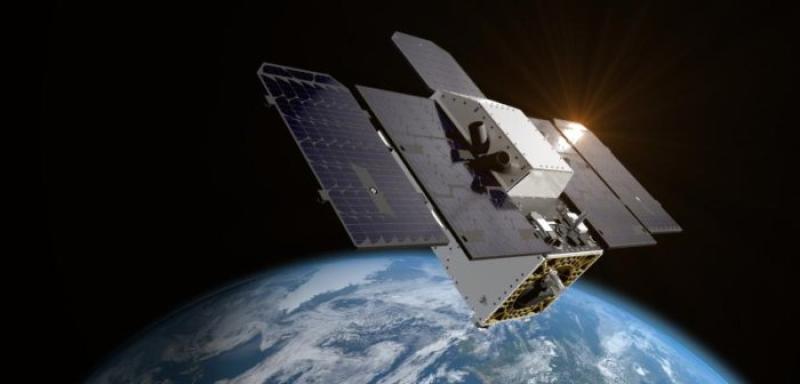SpaceX launches 'precise' greenhouse-gas-measurement spacecraft
By: Mark Moran (UPI)


How many of these things have to be launched before NASA gets it right?

Aug. 18 (UPI) -- A state-of-the-art greenhouse-gas-tracking instrument has been launched into orbit and will measure methane and carbon dioxide emissions, right down to the level of individual facilities and equipment, on a global scale, the space company announced.
The Tanager-1 is the first satellite in orbit as part of the Carbon Mapper Coalition and uses spectrometer technology developed by the Jet Propulsion Laboratory in Pasadena, Calif.
"The imaging spectrometer technology aboard Tanager-1 is the product of four decades of development at NASA JPL and truly in a class of its own," JPL Director Laurie Leshin said. "The data that this public-private partnership provides on sources of greenhouse gas emissions will be precise and global, making it beneficial to everyone."
The Tanager-1 will cover 50,000 square miles of Earth's surface per day, analyzing the greenhouse gasses emitted by individual installations.
Carbon Mapper scientists will analyze data collected by the orbital to identify gas plumes with unique methane and carbon dioxide identifiers -- and pinpoint their sources. Plume data will be publicly available online at the Carbon Mapper data portal .
"The Carbon Mapper Coalition is a prime example of how organizations from different sectors are uniting around a common goal of addressing climate change," said Riley Duren, the Carbon Mapper CEO.
"By detecting, pinpointing and quantifying super-emitters and making this data accessible to decision-makers, we can drive significant action around the world to cut emissions now."
Tanager-1 is part of a larger effort to make methane and carbon dioxide data accessible, giving scientists data points that they can then act on.
That effort includes using measurements obtained by NASA's Earth Surface Mineral Dust Source Investigation , an imaging spectrometer developed by JPL and installed on the International Space Station.
Methane and carbon dioxide are the greatest contributors to climate change, according to scientists. About half of methane emissions worldwide result from human activity, including fossil fuel emissions, agricultural practices and waste management industries.
There is now 50% more carbon dioxide in the atmosphere than there was in 1750, an increase largely due to the extraction and burning of coal, oil and gas, according to a Tanager-1 news release.
The Tanager-1 was part of the payload that was launched by SpaceX on Friday from Vandenberg Space Force Base in California.
Editor's note: An original version of this story incorrectly stated the operation responsible for launch, NASA's relation to the project and the name of the Jet Propulsion Laboratory.











Don't kill the job. You'd think climate scientists were union workers.
We already know the largest emitters are urban areas. Pinpointing single source emissions to score political points doesn't change the simple fact that the source of the problem is consumption of fossil fuels. And that consumption is concentrated in high density populated areas, at least in the United States.
overpopulation is the problem
Climate change is gonna fix that.